Mean Streets Blu-ray Movie
HomeMean Streets Blu-ray Movie 
Warner Bros. | 1973 | 112 min | Rated R | Jul 17, 2012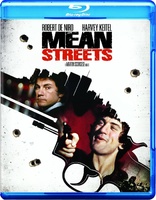
Movie rating
7.7 | / 10 |
Blu-ray rating
| Users | 4.0 | |
| Reviewer | 4.0 | |
| Overall | 4.0 |
Overview
Mean Streets (1973)
A slice of street life in Little Italy among lower echelon Mafiosos, unbalanced punks, and petty criminals.
Starring: Robert De Niro, Harvey Keitel, David Proval, Amy Robinson, Richard RomanusDirector: Martin Scorsese
| Drama | Uncertain |
| Crime | Uncertain |
| Dark humor | Uncertain |
Specifications
Video
Video codec: MPEG-4 AVC
Video resolution: 1080p
Aspect ratio: 1.77:1
Original aspect ratio: 1.85:1
Audio
English: DTS-HD Master Audio Mono (48kHz, 24-bit)
Spanish: Dolby Digital Mono
Portuguese: Dolby Digital Mono
Subtitles
English SDH, French, Spanish, Portuguese, Japanese
Discs
25GB Blu-ray Disc
Single disc (1 BD)
Playback
Region free
Review
Rating summary
| Movie | 4.0 | |
| Video | 4.0 | |
| Audio | 4.0 | |
| Extras | 3.0 | |
| Overall | 4.0 |
Mean Streets Blu-ray Movie Review
Still lean and mean. Lookin' and soundin' good too...
Reviewed by Kenneth Brown July 24, 2012Mean Streets has been available from French distributor Carlotta Films for more than a year, albeit only to those with Region B or Region Free Blu-ray players. Warner, for its part, has finally brought Scorsese's gripping, deeply personal breakthrough stateside with a region-free release that, while notably different from its Carlotta counterpart, should satisfy filmfans, videophiles, purists... essentially anyone and everyone itching to see Mean Streets in all its gritty high definition glory. Rather than go on at length about the film, though, I'd like to focus on the Warner Bros. remaster and subsequent video transfer, the similarities and differences between the U.S. and French releases, and the quality of this new version's DTS-HD Master Audio track. For a closer look at the film itself, please refer to my colleague Svet Atanasov's 2011 Mean Streets review. For a look at the particulars of the Warner Bros. release, read on...
Mean Streets Blu-ray Movie, Video Quality 
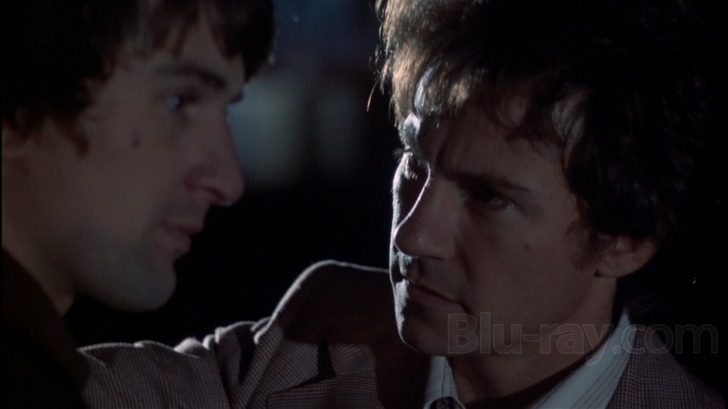
The importance of Kent Wakeford's Mean Streets cinematography can't be overstated and certainly shouldn't be dismissed. Innovative and evocative, it influenced an entire generation of filmmakers and became a template for a new wave of cinematographers desperate to break free of Hollywood convention. "My vision ran with Martin's," Wakeford recalled in a 2009 retrospective interview. "To create a mean, dirty visual look. I wanted to create a tense feeling of needing to keep looking over your shoulder. Martin wanted to capture the anxiety and conflict in each character. It was key." And that's precisely what Scorsese and Wakeford did. The results are extraordinarily effective, even some forty years after being committed to film, and instill the "mean" and distill the "streets" in Mean Streets. It also makes for a soft, grainy, rough-hewn presentation that doesn't exactly lend itself to high definition viewing. There's no mistaking Warner's 1080p/AVC-encoded video transfer for anything less, mind you, but newcomers and untrained videophiles may find themselves asking if something is out of sorts with the image as is. The short answer is no. This is, by and large, the film Scorsese intended and Wakeford shot. The long answer... is a bit more complicated.
There is room for some improvement, I'll admit; a bit more restorative cleanup here, a bit more measured tinkering there. But that really isn't Warner's style, is it? Nor should it be. Warner, perhaps more than any other studio, has developed a reputation for delivering faithful catalog presentations, inherent flaws and all. And that's precisely what the studio does with Mean Streets. Scratches, nicks and other distracting print marks have been carefully removed or minimized (key word "carefully"), color and contrast have been nudged toward levels in line with Scorsese's stated intentions and, as far as I can tell, no invasive, detrimental techniques have been utilized. There will undoubtedly be those who worry themselves sick over whether some form of noise reduction has been aggressively employed, but there isn't any evidence to fuel any such anxiety. The softness I observed was a filmic softness. The grain surges and inconsistencies I noticed trace back to the source. And without any significant artifacting, banding, aliasing, or serious compression anomalies to point to, the encode strikes me as both precise and proficient.
There are some minor differences between the Warner and Carlotta Films release, but without Scorsese or Wakeford's word on the subject, it's difficult to discern which is more accurate. Skintones are a touch warmer in the Carlotta transfer, colors are a bit more saturated, and shadows are slightly more oppressive, none of which suggests the French encode is necessarily more accurate. As for the Warner transfer, fine textures are a tad crisper to my eye, black levels are somewhat more natural, and edges are negligibly sharper. Does one best the other? Only by a matter of preference and, even then, without an absolute certainty as to which better represents the film's original presentation. I personally prefer the more lifelike Warner presentation, but not by a substantial amount. Scorsese and Wakeford's palette breathes, sighs and coughs New York. Grain wreaks its gritty vengeance. Detail, in spite of all its barriers and boundaries, delivers everything Wakeford's handheld 35mm camerawork captures. Most of all, the film retains a consistency and a visceral reliability that makes every scene cohesive with the next, even when the shots involve share little in common.
Ultimately, Warner's transfer is a successful one. It doesn't look shiny and new; something that would undermine everything Scorsese and Wakeford intended Mean Streets to be. And yet it doesn't look as if the film has been mishandled, treated poorly, or rushed to pressing. Not in the slightest. It's clear extensive effort and plenty of tender, loving care has been invested in remastering and, yes, resurrecting Scorsese's 1973 passion project. Could it look better? Perhaps, given more pristine source elements to work with. Some will even prefer the warmer tones of the Region-B Carlotta transfer. But as far as I'm concerned, Warner has provided the version of Mean Streets to own, and the one I'll be adding to my collection.
Mean Streets Blu-ray Movie, Audio Quality 
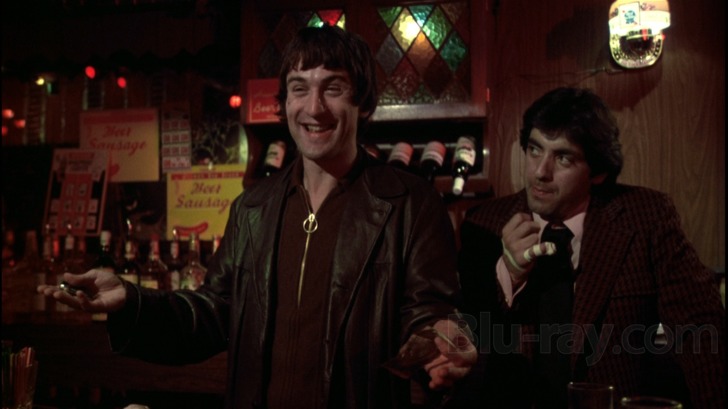
The new Warner release also boasts a fittingly raw 24-bit DTS-HD Master Audio Mono mix that encapsulates Scorsese's rough-n-tumble streets. Though funneled through a single channel, dialogue, effects, ambience and music come together without tripping, crushing or trampling each other. It doesn't sound as if the film was shot yesterday, of course, or even in a proper studio in 1973. It clings to its low-budget roots, abrasive tone and tenor, and the lowliness of its original sound design, as it should. Voices are clear and intelligible yet embedded in a noisy, unruly city on the verge of chaos. Gunshots and outbursts are clean and punchy, shrill and tinny as their '70s temperament makes them at times. Elsewhere, Scorsese's anointed '60s rock songs weave through the drama and violence, not as standout pieces, but as yet another distinct layer in the director's vision of New York, rising and spreading into every alley, storefront and ear. A carefully crafted lossless 5.1 remix would have been welcome, especially as it might have literally spread the music and other elements into the entire soundfield. Still, a faithful mono track shouldn't be underestimated. Mean Streets' DTS-HD MA mix proves as much.
Mean Streets Blu-ray Movie, Special Features and Extras 
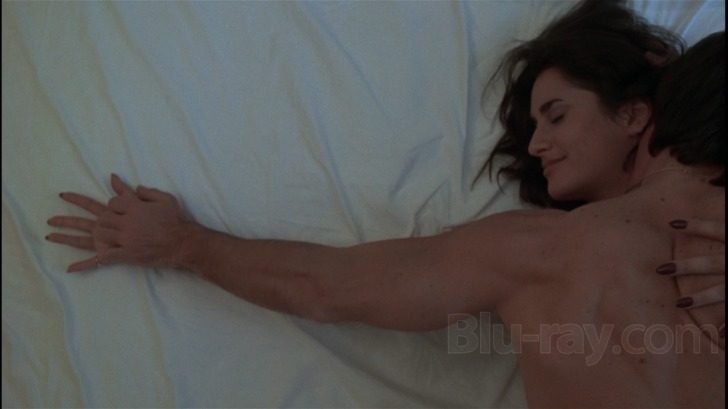
There are quite a few excellent English-language special features on the Region-B locked Carlotta Films disc that aren't included on the Warner release: a 27-minute retrospective documentary, three lengthy interviews (one with cinematographer Kent Wakeford, one with critic Kent Jones, and a particularly interesting one in which Scorsese interviews his parents), a visit to the New York neighborhood that inspired Mean Streets, and 11-minutes of raw footage the director shot while filming. Tempting, I know. The Carlotta release gets to keep its home on my shelves for the extras alone.
The Warner release offers one key thing the Carlotta version doesn't, though: an Audio Commentary with director Martin Scorsese, screenwriter Mardik Martin and actress Amy Robinson. Each participant has been recorded separately, and Robinson offers little, but Scorsese and Martin offer a rousing, thoroughly engrossing overview of the film, its production, various challenges, budgetary constraints, innovations and personal touches. The director goes to great lengths describing his childhood home, his life growing up, and his attempts to translate that volatile world to the big screen, and he goes to even greater lengths dissecting the cultures, religious beliefs, criminal enterprises and socioeconomic climate that created that environment. Martin provides fascinating insight as well, even though his memory isn't as sharp as Scorsese's. Together, their comments are invaluable, and almost required listening when revisiting Mean Streets for a second, third or fourteenth time.
A Vintage Featurette (SD, 7 minutes) and a Theatrical Trailer (SD, 3 minutes) are the only other extras included. It's just a shame Warner wasn't able to acquire the aforementioned Carlotta Films documentaries and interviews, which would have made this the definitive version for completists and supplemental junkies.
Mean Streets Blu-ray Movie, Overall Score and Recommendation 
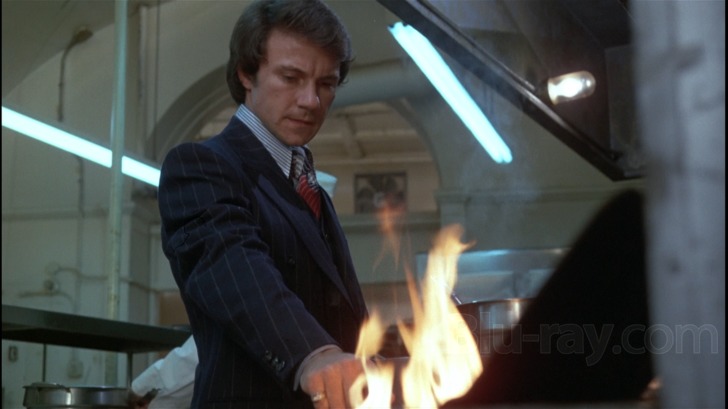
"But down these mean streets a man must go who is not himself mean, who is neither tarnished nor afraid."
Even after thirty-nine long years, Mean Streets remains a classic. It isn't Scorsese's best, as some purists insist, but on those streets rests the foundation upon which the renowned director built his finest films -- Taxi Driver, Raging Bull, Goodfellas -- and established himself as a filmmaker with something bold and intense to contribute to cinema. Its performances are unkempt but strong, its story loose but convincing, its cinematography startling but striking, and its closing minutes as unnerving and tragic as anything Scorsese has given us since. Mean Streets is an essential part of the director's canon and one fans have clamored to see released on Blu-ray. Warner's response? Here you are, dear cinephiles. Enjoy. And enjoy they can, thanks to a faithful video transfer, an equally sure DTS-HD Master Audio Mono track, and a must-listen commentary with Scorsese and screenwriter Mardik Martin. Don't hesitate to add this one to your cart, especially at such a reasonable price. It doesn't belong on the shelf at Best Buy. It belongs on your shelf, alongside the rest of your collection. Trust me.
Similar titles
Similar titles you might also like

Carlito's Way 4K
1993

The Sopranos: The Complete Series
1999-2007

The Irishman
2019

Billy Bathgate
1991

GoodFellas
1990

The Long Good Friday 4K
1980

Serpico 4K
1973

Once Upon a Time in America
Extended Director's Cut
1984

The Narrows
2008

Gloria
1980

Gomorrah
Gomorra
2008

The Killing of a Chinese Bookie
1976 and 1978 Versions
1976

The Drop
2014

Wonder Wheel
2017

Revenge of the Green Dragons
2014

Bad Lieutenant 4K
1992

The Wolf of Wall Street 4K
2013

King of New York
1990

Spring Breakers
2012

Donnie Brasco
Theatrical Edition
1997

